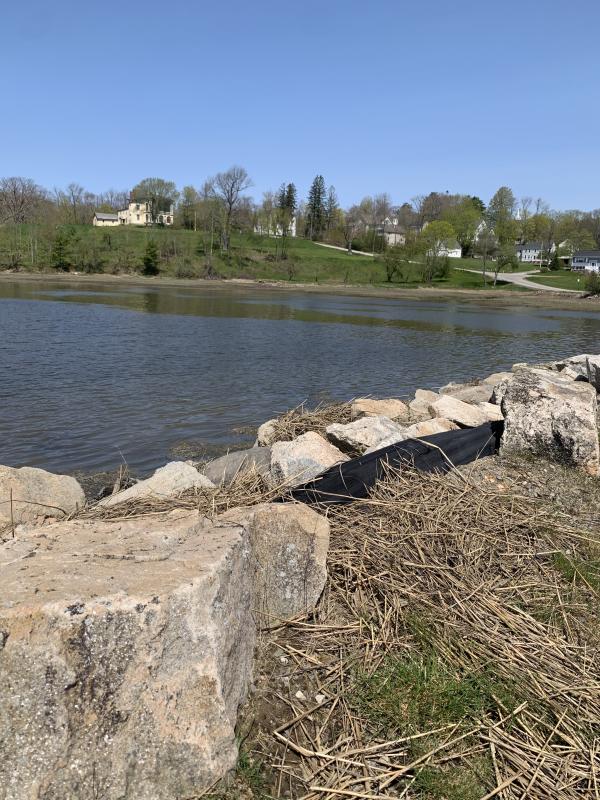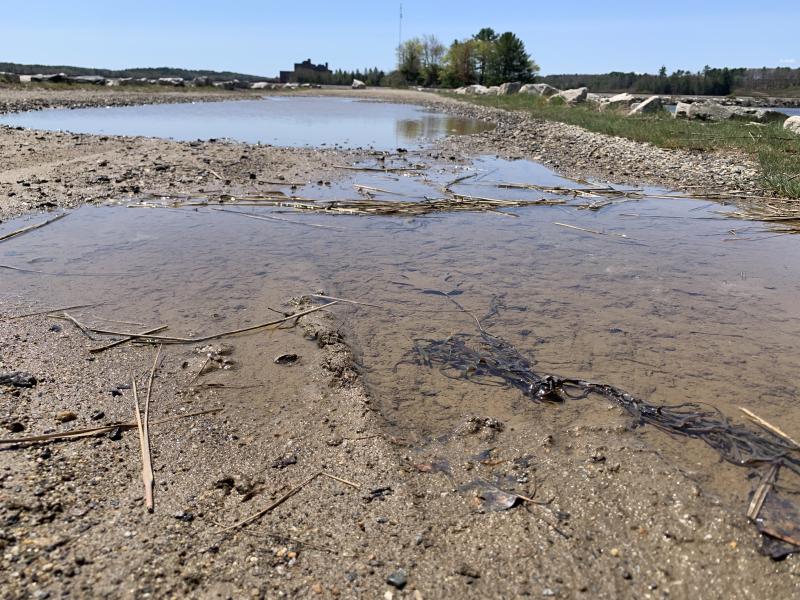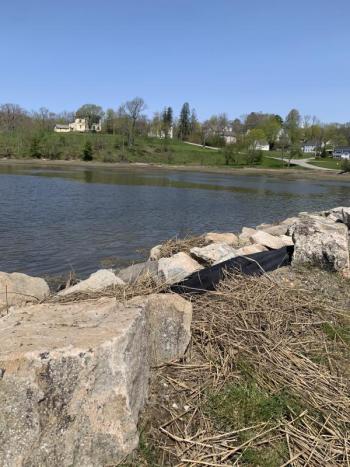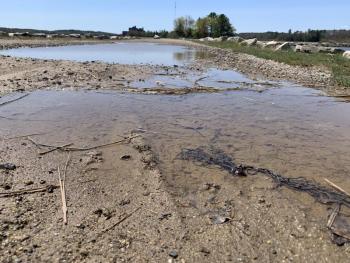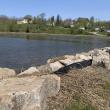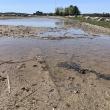Wiscasset selectmen
‘Rewilding’ plan floated for Pleasant Street Extension
Mon, 05/08/2023 - 2:00pm
Fort Hill Street’s Leslie Roberts on May 2 proposed planting native grasses and native perennials on Pleasant Street Extension, at Fore and Pleasant streets. She told selectmen the project “won’t cost the taxpayers money, with the exception of maybe a little bit of assistance from public works.” The project would leave a foot path and would not prevent bridges to White’s Island from being rebuilt, according to the written proposal and Roberts, in the meeting and via email to Wiscasset Newspaper.
“Plantings in this area would both help prevent further erosion of the already receding dirt road due to ever heightening storm tides and would also provide an improved habitat for our local birds and pollinators,” states the proposal Roberts handed selectmen and sent Wiscasset Newspaper at its request. The proposal states a neighborhood group is partnering with Midcoast Conservancy (MC) and wildlife ecologist Deb Perkins of First Light Wildlife Habitats; Perkins would create a plant list and the rest of a concept plan, funded by McClintock Foundation and residents’ donations.
MC has agreed to serve as the funding agency, provide guidance on grant-seeking and help with volunteer labor, the proposal continues. If the town gives the go-ahead on the project, a Maine Outdoor Heritage Fund grant would be sought. The proposal adds, planting would start next fall “if all goes smoothly.”
It states the extension’s “naturalization ... will not hinder any future projects to create access to White’s Island should that idea gain funding. With your approval, we look forward to an opportunity to come together to make a public space more welcoming to residents and visitors alike.” People could still park, “nose in,” Roberts told the board. “They just couldn’t drive down all the way to the end of the causeway.”
Selectman Terry Heller called the plan beautiful and said she loved it. She wondered how flooding would impact the spot after the work. Most plantings would be wetland grasses, which are used to being submerged, Roberts responded. Little, if any, fill would be added, she said. The plan would be to “rough up the surface, move some rocks around, and plant into what’s there,” she said.
“We’re actually rewilding an area that has been pretty severely impacted by fill and all the stuff that has happened before.”
Chair Sarah Whitfield asked if any environmental approvals were needed. Roberts said she can check with the Army Corps of Engineers.
Town Manager Dennis Simmons wanted to run the proposal by department heads and said while a town ordinance lets the board approve improvements to town property, he would recommend “some public engagement.” Whitfield concurred, noting the extensive interest a proposal involving White’s Island got last year. Selectmen plan a public hearing June 6.
Maloney and resident Susan Blagden praised the idea as addressing the spot they both termed an eyesore. Said Blagden, “I this is an important first step to making our town once again the prettiest village in Maine, especially if we can get rid of the scaffolding on Main Street,” where Simmons said repairs continue on the Wawenock building.
Also in the May 2 meeting at the town office and over Zoom and YouTube, the board and Lincoln County Regional Planning Commission’s Emily Rabbe discussed possible ways to approach to the state housing mandate, LD 2003. On a question from Maloney, Rabbe said LD 2003 bars towns from requiring a minimum lot size to have an accessory home, but setback rules would still apply.
Unless the state extends the deadline, the town has until July 1 to adapt its ordinances to LD 2003, Rabbe said. She said it requires accessory homes be at least 190 square feet, and towns can set a limit, or not; she recommends one, to avoid an accessory unit’s being only slightly smaller than the main home. “You’d want it to be somewhat reasonable in terms of scale, to the rest of the property.”
Rabbe was seeking board guidance as the ordinance review committee drafts possible ordinance changes. Maloney said he would rather do nothing. “I don’t like the idea of being forced to do something like this.” Heller agreed.
If the town does nothing, the ordinance would not comply and might be challenged in court, Rabbe said.
In other business, selectmen nodded a volunteer dockmaster program resident Don Davis proposed. He said volunteers could greet arriving guests, supervise waterfront facilities including the bathrooms and collect pump-out and other fees.
“When guests do come up the river, a lot of times they’re looking for information on what’s going on in the town. ‘Do you have fuel?’ ‘No.’ ... We have some things, we don’t have other things, so let’s have a person there that can put a bright spot on that, and recommend the town in a bright fashion.”
Davis said he and Wiscasset Area Chamber of Commerce have begun talking about doing a ditty bag that would market businesses.
On questions from the board, Davis said he would oversee the volunteer dockmasters’ schedule and he “absolutely” thought he could get enough volunteers.
Simmons advised, the volunteers, not bonded like town employees are, cannot handle cash, so it would need to go into a container, and perhaps a hand-held machine for credit cards could be used to help “avoid the cash issue as much as possible.”
The board approved the plan 5-0.
And at Simmons’ request due to a union issue, the board tabled Harbor Master Larry Hesseltine’s request to add Callie Fairservice as a deputy harbor master.
Event Date
Standard Post

